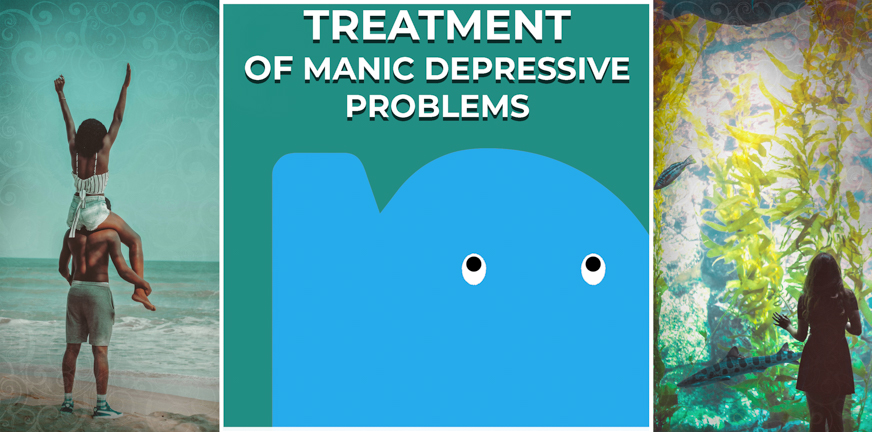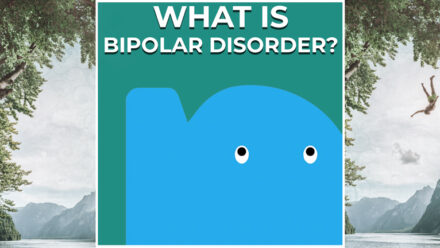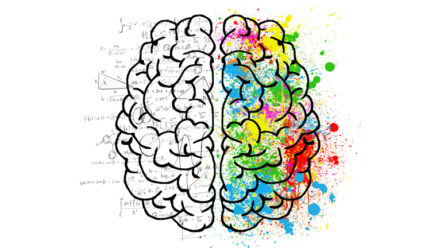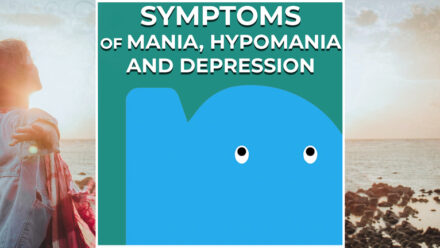
Treatment of bipolar disorder is usually a mix of psycho-education, counselling and medication. Sometimes with additional psychotherapy. Very important is that the immediate social circle of someone with manic depression is also involved.
They too need the right kind of information and support. These friends and relatives can play an important part by noticing any signals that point to an upcoming manic or depressive episode.
Acute treatment
Treatment of manic depressive problems has two stages. It starts with acute treatment of depression or mania, followed by maintenance treatment. In many cases of a serious manic episode, antipsychotics and tranquilisers (benzodiazepines) are prescribed. And in an early stage, often with an additional mood stabiliser such as lithium.
During heavy depressive episodes, an antidepressant is usually prescribed. The medical guideline is to begin lowering the dose of the antidepressant after several months, and continue with a mood stabiliser. The combination of mood stabilisers and antidepressants could trigger a manic episode, so this is something to be careful with.
Maintenance treatment
The aim of maintenance treatment is to prevent you from relapsing (meaning that manic or depressive problems return). Treatment with medication is first continued for another couple of months. After this period you might be advised to undergo maintenance treatment. This mainly depends on your history and personal situation. Maintenance treatment is advised when you’ve already had multiple (heavy) episodes. As well as when manic depressive sensitivity runs in the family.
Maintenance treatment usually means using a mood stabiliser. This medicine does not lower the chance of mood swings, but helps to keep them under control. Lithium is the go-to medication, but for quite a number of people it is not effective. Which medication is best suited for someone is highly individual and thus should be considered from person to person.
Proper treatment and prevention of mood episodes is very important. And so is learning to deal with your vulnerability. The main advice is getting enough sleep and sticking to a healthy day-and-night routine. Along with staying active and having social contacts. These tips are good for everyone, but extra important when you have bipolar disorder.
The Opposite Rule as a strategy for manic depression
The Opposite Rule is a strategy for when you sense the early signs of an oncoming manic depression, to prevent a full-blown mania or depression. It means doing the opposite behaviour of what your mood urges you to do. Thereby you can restore the balance and return to a stable mood. Are you feeling down and want to just curl up and hide on the couch or in bed? Instead go exercise at the gym or meet up with friends. Or are you hypomanic (mildly manic)? Then cancel appointments, do relaxation exercises and go to bed early. This strategy demands considerable self-knowledge and discipline. But if you are aware of your situation early, these opposite actions can help you become stable again.
Psychological treatment
The most commonly applied and most effective psychological treatment for bipolar mood disorder is psycho-education. It offers a useful explanation of the problems and sound advice on treatment. Psycho-education is best started immediately after the acute treatment. Preferably in a group setting, involving both patients and their family/loved ones. Another important part of psycho-education is the composition of a personal relapse prevention plan or crisis map. This can help prevent a relapse by adjusting course in time.
Cognitive behavioural therapy (CBT) can be helpful as well. It focuses on dysfunctional thoughts about yourself and the people around you. Along with the behaviour that follows from these thoughts. CBT can be done individually or in a group setting.
Family/Systemic therapy focuses on improving relationships within you family and/or social circle. The main component is the training of problem-solving and communication skills among relatives. This can help create a safer and more positive social environment. This can eventually improve and stabilise the patient’s mood.




